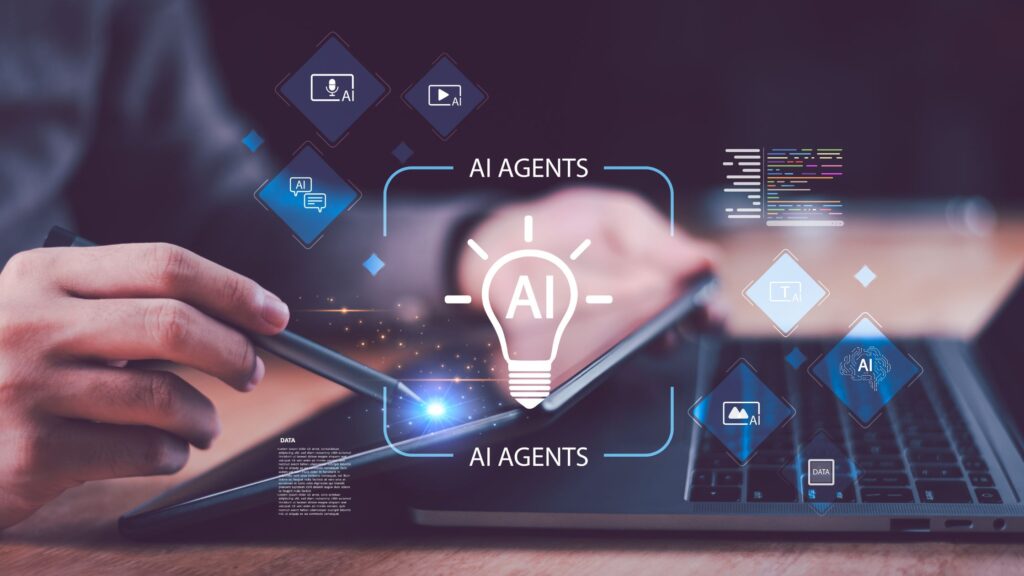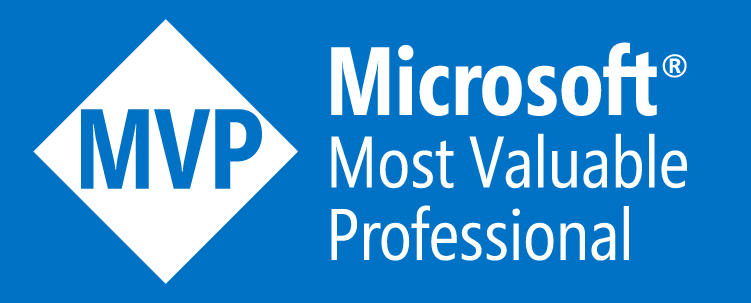From Digitization to Intelligence: The Era of AI Agents

In the early days of digital transformation, the biggest advantage of adopting technology was digitizing manual processes—automating tasks, improving reporting, and enabling complex calculations. It was an era of replacing paper with pixels, spreadsheets with dashboards, and manual approvals with workflows. But today, we’ve entered a new paradigm. AI is no longer just supporting our work—it’s doing the work. We are now in the age of AI Agents, where intelligent software systems are reshaping how business applications like Dynamics 365 Finance & Operations (FO) and Business Central are built, deployed, and operated. What Are AI Agents? AI agents are smart, autonomous software services that combine three capabilities: Unlike a traditional bot that waits for prompts, agents take initiative. They analyse context, choose the right tools, and generate outcomes based on business goals. Example: Customer Service Agent Let’s see how these components work together: This isn’t just automation—it’s intelligent orchestration, where the agent thinks, decides, and acts like a digital coworker Building AI Agents in the Microsoft Ecosystem Microsoft provides multiple paths to create agents, tailored for different user types—from developers to business users. Azure AI Agent Service – For Developers & Architects The Azure AI Agent Service is Microsoft’s enterprise-grade solution for building and managing intelligent agents. Designed for developers and solution architects, this managed service provides a scalable and secure environment to create agents that integrate deeply with business systems. It is built on top of the OpenAI Assistants API, enhanced with Microsoft’s enterprise security, observability, and governance capabilities. With Azure AI Agent Service, you can combine large language models (LLMs) with enterprise data through Retrieval-Augmented Generation (RAG), enabling agents to ground their responses in reliable, domain-specific knowledge. It also supports function calling, giving agents the ability to interact with APIs, update records, trigger workflows, or even orchestrate complex business processes in Dynamics 365. For organizations that need mission-critical agents with compliance and scalability, Azure AI Agent Service acts as a complete factory for intelligent agents—offering tools, orchestration, and monitoring all in one place. Semantic Kernel – For Custom App Builders For developers who prefer full control and flexibility, Semantic Kernel is Microsoft’s open-source development kit for building highly customizable agents. Unlike a managed service, Semantic Kernel gives you the freedom to design how an agent reasons, orchestrates, and integrates with your applications. It is especially useful for creating multi-agent systems, where several specialized agents collaborate to handle complex workflows. Semantic Kernel supports a wide range of plugins and orchestration patterns, enabling developers to connect agents to external tools and services such as Azure AI Search, OpenAPI connectors, or Bing. This makes it an ideal choice when you want to embed intelligence directly into custom apps or enterprise solutions. Developers can decide exactly how the agent interprets inputs, what knowledge it uses, and how it interacts with different systems. In short, Semantic Kernel is the toolbox for builders who want to go beyond standard templates and design agents with precision and creativity. Copilot Studio – For Low-Code Makers Not every business has developers on hand to code advanced agents, and that’s where Copilot Studio comes in. Aimed at business analysts, consultants, and makers, this low-code platform allows users to create and deploy AI agents with minimal technical knowledge. Using a natural language interface, you can define how an agent should behave, configure its tasks, and connect it to your existing Microsoft 365 environment—including Teams, SharePoint, and Outlook. Copilot Studio also integrates seamlessly with the Power Platform, making it possible to connect agents with Power Automate flows or external data sources without writing code. This democratizes agent development, giving business teams the power to create assistants for HR, sales, finance, or support functions on their own. Whether it’s a simple HR query bot or a sales assistant that drafts responses, Copilot Studio provides the fastest path to getting intelligent agents into production.
AI Agents in Microsoft Business Applications: Dynamics 365 F&O, Business Central, CE & Power Platform

Microsoft’s Journey in Business Applications For the last decade, Microsoft has been making continuous investments in its business applications ecosystem, shaping the way enterprises of all sizes from SMEs to large corporations manage their operations. With Dynamics 365 Finance & Operations (F&O), Business Central, Customer Engagement (CE), and the Power Platform, Microsoft has built a state-of-the-art ERP and CRM landscape that delivers flexibility, scalability, and intelligence. These applications empower organizations to: In short, Microsoft’s ecosystem has become the backbone of modern enterprises, delivering both operational efficiency and strategic decision-making power. From Copilot to Agents: The Evolution To support users in daily operations, Microsoft introduced Copilot across its business applications. Copilot acts as a context-aware assistant, enabling users to: This was a major leap in productivity. However, while Copilot is an assistant, it still waits for user prompts. The next evolution is the introduction of Agents—autonomous, AI-powered entities that can act independently and carry out business workflows without constant user involvement. Copilot vs Agent Feature Copilot (Assistant) Agent (Autonomous Doer) Role Helps the user Acts on behalf of the user Behavior Responds to prompts Acts independently Scope Provides suggestions & insights Executes workflows & automates tasks Intelligence Context-aware Decision-making & adaptive Example “Show me unpaid invoices.” “Process supplier emails and update purchase orders.” In simple terms, Copilot is like a helpful colleague, while Agents are like digital employees who don’t wait for instructions—they just get the job done. Agents in Dynamics 365 Finance & Operations Microsoft has introduced Agent Management in Dynamics 365 F&O as a production-ready preview. These agents are designed to automate routine ERP processes and operate directly within the system. Key capabilities include: Microsoft has started introducing intelligent agents in Dynamics 365 Finance & Operations (F&O) that go beyond traditional automation and empower finance and procurement teams with AI-driven decision-making. These agents are designed to remove repetitive manual tasks, streamline operations, and accelerate financial processes. 1. Account Reconciliation Agent The Account Reconciliation Agent automates reconciliation tasks between subledgers and the general ledger. Traditionally, finance teams relied on SQL Server Reporting Services (SSRS) reports for reconciliation, which was a reactive and time-consuming approach. With this agent, the process shifts to a proactive experience. The Account Reconciliation workspace raises exceptions, and the intelligent agent evaluates these exceptions, providing recommended actions. This represents a significant step toward continuous financial close, improving both efficiency and accuracy for finance teams. 2. Financial Reconciliation Agent The Financial Reconciliation Agent simplifies reconciling two sets of financial data, often maintained in Excel workbooks. Instead of manually creating reconciliation rules, the agent uses AI to define rules automatically, perform the reconciliation, and generate a comprehensive report. What makes this agent more powerful is its ability to produce a generative AI summary of the reconciliation results, making financial reporting faster, more accurate, and easier to interpret. 3. Supplier Communications Agent In procurement, communication with suppliers can consume a large share of employees’ time. The Supplier Communications Agent in Dynamics 365 Supply Chain Management automates routine vendor interactions—such as handling emails about purchase orders, confirmations, and changes. By taking over these low-complexity but repetitive tasks, the agent allows procurement staff to focus on strategic, value-added activities. This not only increases productivity but also reduces procurement costs by streamlining communication and minimizing manual intervention. Agents in Dynamics 365 Sales Beyond finance and supply chain, Microsoft has also introduced agents for Dynamics 365 Sales to optimize lead management. Sales Qualification Agent Sales teams often face a high volume of inbound leads from websites, events, or webinars. Many of these leads remain idle in CRM due to manual qualification processes. The Sales Qualification Agent automates this lead qualification—helping sales reps quickly identify, score, and prioritize leads. The agent doesn’t replace human judgment but ensures that sales teams spend more time engaging with high-value prospects, instead of wasting hours on low-quality or irrelevant leads. Agents in Dynamics 365 Business Central Microsoft has taken automation to the next level in Business Central by introducing Sales Order Agents, which handle end-to-end order processing. The workflow is highly streamlined: This not only reduces manual workload but also enhances accuracy and response times, improving customer satisfaction and giving sales teams more time to focus on relationship-building. The Road Ahead Microsoft is not just adding AI to its business applications—it is transforming them into intelligent ecosystems where agents become trusted digital employees. From Finance & Operations to Business Central and the Power Platform, the shift from Copilot (assistants) to Agents (autonomous doers) marks the beginning of a new era in enterprise automation. Enterprises that embrace this shift will not only optimize operations but also unlock new levels of agility, efficiency, and innovation.

